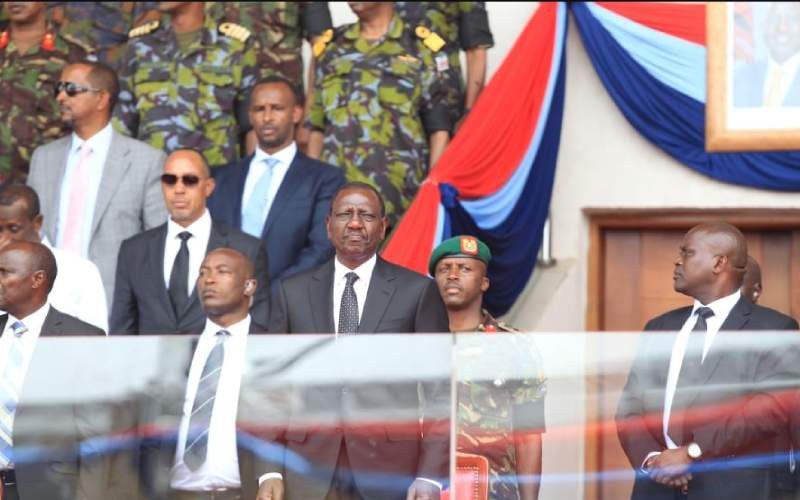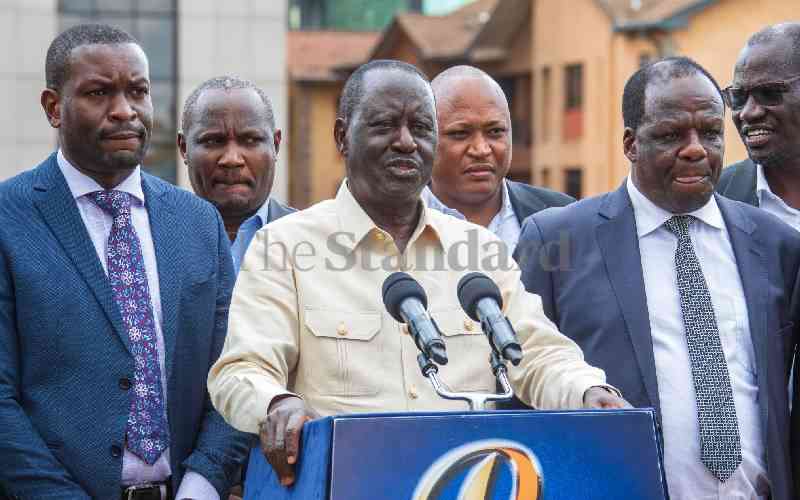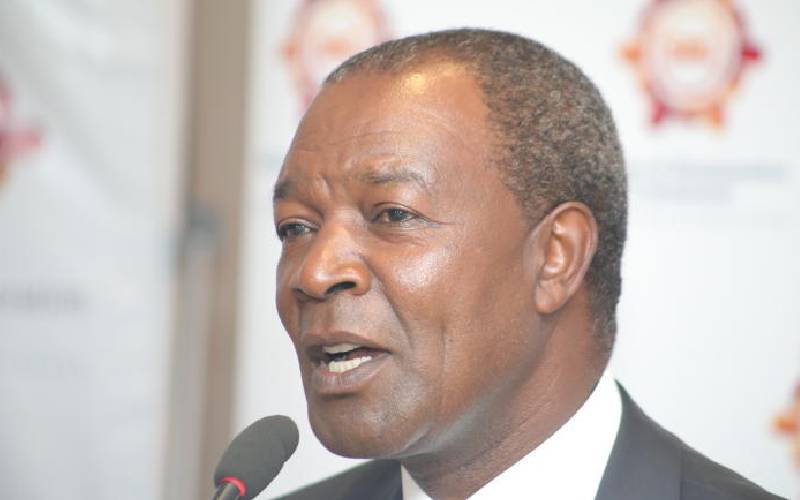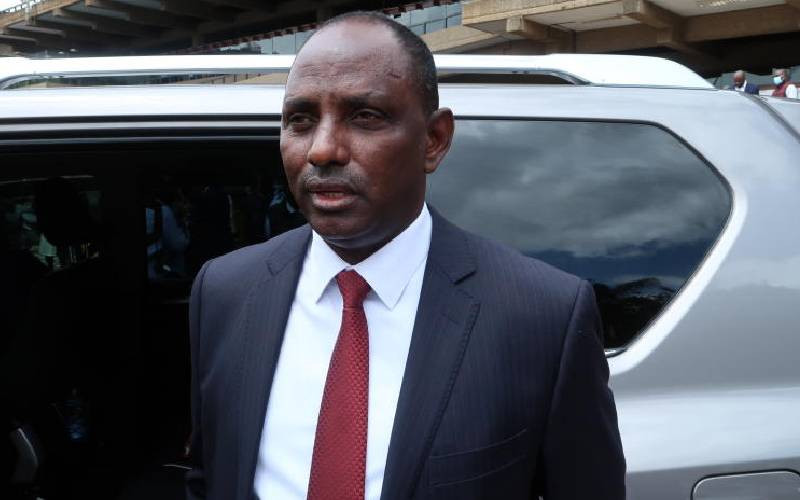By Betty Maina
As Kenya moves towards the first elections under the new Constitution, Kenyans have great expectations that life will dramatically improve with the implementation of both national and county governments. These Governments must therefore have the capacity to implement programmes for improved service delivery to impact all the citizens.
The Kenya Association of Manufacturers (KAM) has put forward its view on what the policy priorities should be for any new government, in a document titled “The KAM Industrial Business Agenda – Priority Actions to build competitive local industry to expand employment in Kenya”.
The most challenging task for the new Governments will be to lay down a sustainable path towards competitiveness of Kenya. The tone should be set within weeks of taking office so that business sees credible commitments to address the major bottlenecks faced by industry and to ensure continued investment.
Energy security
Energy security must be among the highest priorities for the next Government, as large chunks of our energy infrastructure urgently need replacing and Kenya faces a serious energy shortfall. The Government should pursue policies to deliver a balanced energy mix by providing affordable and sufficient, clean and reliable energy to power industry. Given the costs of these services, the Government should provide more support to boost energy capacity expansion for Kenya to deliver competitively priced manufactured goods and service.
Tax burden
Kenya remains amongst the most heavily taxed economies in the world. The businesses find tax administration a major constraint. This thus calls the Government to establish competitive tax regime by making taxes less burdensome on business, simple to administer and eliminate multiple regulations by Government agencies.
Wage policy
It is key that the next Government helps to develop a fare wage policy that will spur industrial development. It should pursue labour regulations that will facilitate employment expansion and industrialisation and adopt a policy that focuses on rewards based on productivity and appropriate preparedness for work through training.
Market development
The priority is that industrial producers need to be supported with access to markets. The incoming Government must safeguard the open trade policy, enhance and actively pursue initiatives to grow and diversify Kenyan exports while ensuring domestic consumption of our goods. We expect Government to lead in conclusion of agreements that expand markets while being the top consumer of Kenyan products.
Improve transport
A good transport network is critical to the functioning of a competitive economy. An efficient and safe system and links will support mobility and delivery of goods to the market. For too long Kenya has relied principally on roads for goods and people movement.
Because of great loss of time, wasted fuel, delayed business and road carnage, we expect the Government to work with all stakeholders to ensure safe and seamless movement of people and goods through improvement of roads and rail as well as application of technology and other measures to promote swift passage, safety and efficiency.
Stay informed. Subscribe to our newsletter
With inadequate performance of Mombasa port, a strategic trade facility both for Kenya and its neighbours, the challenges facing manufacturers should be fixed to increase efficiency and productivity.
Industrial fund
Kenya needs to put in place incentives and support for entrepreneurs. This is by establishing a National Industrialisation Fund to recapitalise its development financial institutions. These should be directed to support industrial investment that can enhance employment expansion and value addition to agricultural products in various value chains. We need an industrial policy, which supports those areas of industry where Kenya has a comparative advantage.
Service delivery
The Constitution heralds the quest for shared and accountable government to ensure delivery of the promised services. Therefore, the required resources and capacity for counties to carry out functions assigned under the constitution must remain a top priority for better business environment.
In addition, the incoming Government must prioritise reform of public institutions, rationalise the agencies, merge those with similar functions, and streamline them to be efficient and accountable.
Water security
The availability of sustainable water and other natural resources will determine the competitive advantage of Kenya against other investment destinations in the region and world over. The incoming Government must demonstrate commitment to conservation of water towers, modernisation of urban water systems and sustainable water use for commercial and residential needs.
Equipping students
Despite expanded access to education, many young people still enter the job market without adequate skills. It is observed that 92 per cent of the unemployed youth lack skills. Those who graduate from higher education lack competency. The education system should be developed to help students put classroom theory into practice to become entrepreneurs rather than jobs seekers.
The common theme that underlies our recommendations is to ensure that our country and counties can create an environment for competitive Kenyan businesses. KAM’s contribution is inspired by the view that business has a duty and role to play in shaping the election debate and ensuring that political parties and their aspirants for office pursue a pro-growth and pro-business agenda.
These priorities take into account long-term and shorter-term issues. Those aspiring for leadership at the national and county levels should take this proposal to the heart of their preparations for office.
The writer is the CEO of Kenya Association of Manufacturers
 The Standard Group Plc is a
multi-media organization with investments in media platforms spanning newspaper
print operations, television, radio broadcasting, digital and online services. The
Standard Group is recognized as a leading multi-media house in Kenya with a key
influence in matters of national and international interest.
The Standard Group Plc is a
multi-media organization with investments in media platforms spanning newspaper
print operations, television, radio broadcasting, digital and online services. The
Standard Group is recognized as a leading multi-media house in Kenya with a key
influence in matters of national and international interest.
 The Standard Group Plc is a
multi-media organization with investments in media platforms spanning newspaper
print operations, television, radio broadcasting, digital and online services. The
Standard Group is recognized as a leading multi-media house in Kenya with a key
influence in matters of national and international interest.
The Standard Group Plc is a
multi-media organization with investments in media platforms spanning newspaper
print operations, television, radio broadcasting, digital and online services. The
Standard Group is recognized as a leading multi-media house in Kenya with a key
influence in matters of national and international interest.








